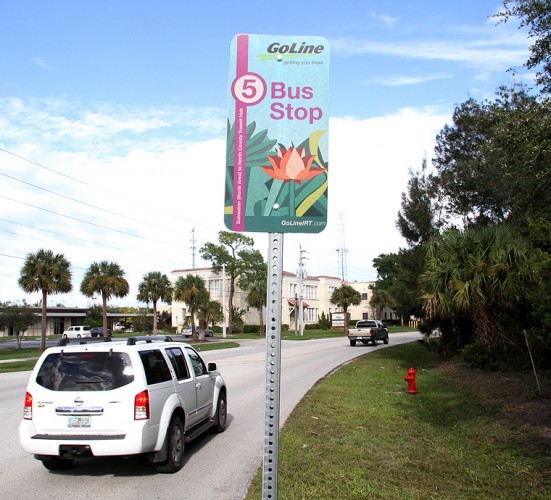
SEBASTIAN — The Sebastian City Council has approved giving the Senior Resource Association $50,000 for its GoLine service. The decision, though unanimous, raised questions of whether it is fair for the organization to make the request, given that other cities don’t pay into the bus service.
“This just isn’t right,” said Sebastian Councilwoman Andrea Coy of being asked for the funds, which help pay for bus service in the northern part of Indian River County.
“I’m tired of us being picked on,” she added.
Only Sebastian and Fellsmere have agreed to pay the requested $50,000. The City of Vero Beach has been asked and has denied the request.
Councilman Don Wright expressed similar concerns and warned that this might be the last year the Sebastian City Council approves the allocation to the Senior Resource Association, calling it “objectionable” that Vero Beach does not pay in.
“I’m tired of special groups coming to the city” asking for money,” Wright said, noting that city residents pay enough in taxes that the county should be able to afford what the group needs.
Sebastian’s funds for GoLine will come from the city’s local option gas tax.
Coy suggested the council approve $25,000 and hold the remainder until such time as Vero Beach pays up. Her motion died on the floor.
Mayor Jim Hill said that GoLine should not be punished because one of the cities refuses to participate.
Coy eventually agreed to fully fund the request but only “reluctantly,” she said.
Vero Beach Mayor Jay Kramer explained this week that the city decided not to give $50,000 to GoLine, but instead lease property on 16th Street near the railroad tracks for a bus hub.
“Obviously, they’ve got to have a hub,” he said, explaining that residents near the current hub behind the County Administration complex have been complaining about trash and other nuisances associated with the hub.
“We are still giving to the GoLine,” he said.
Phil Matson, staff director of the county’s Metropolitan Planning Organization, said that the land donation could count as a local match for state construction dollars. However, the associated dollar amount from the land would not count for state and federal operation grant funding.
The county receives $200,000 less in operational grants when a city declines to match $50,000, Matson said.
While much of both Sebastian and Fellsmere’s criticism over funding has been focused on the City of Vero Beach, Kramer questioned whether the cities should even be asked for funds to help what ultimately is a county-run transportation service.
He explained that city residents pay county taxes – from which go funds to GoLine. In essence, the city residents are paying two times for the same service.
“It’s a difficult argument,” Matson said, noting that residents presumably move into cities seeking a higher level of service than what they’d receive living in the unincorporated parts of the county.
Matson added that the county allocates $535,000 annually to the GoLine bus service – a service provided to approximately 140,000 residents
Assuming each city has about 14,000 residents – or 10 percent of the county’s total population, Matson said, then the $50,000 is less than 10 percent of what the county pays.
“We’re trying to achieve the best equity,” Matson said.



